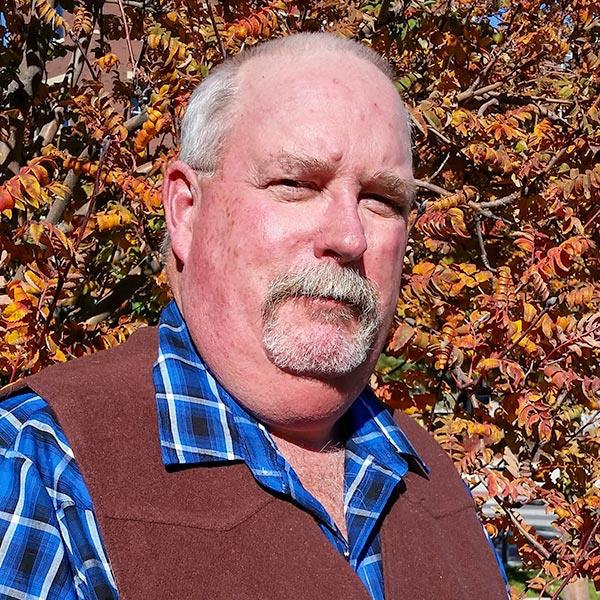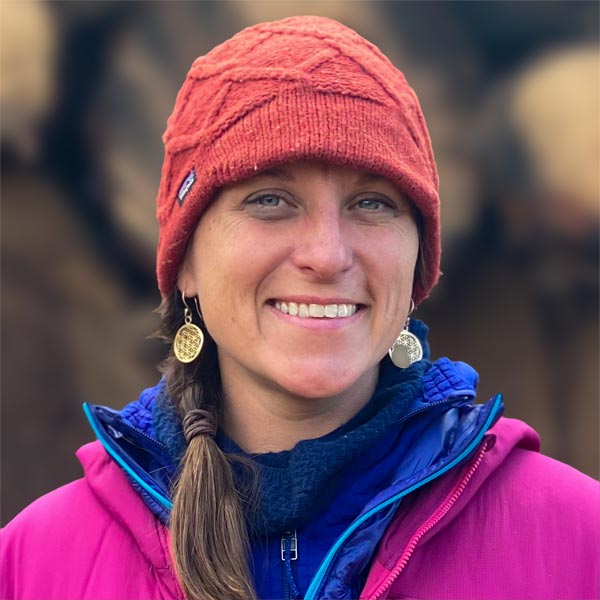Expanding Nevada's research footprint
New agricultural research and Extension center begins operations
![]() Bill Payne, dean of the College, inspects Merino and Rambouillet/Merino crossbred sheep at the annual sheep sale, this year the first for the College as new owners of the Rafter 7 herd and ranch donated by Ruby Hills Mining Company, LLC.
Bill Payne, dean of the College, inspects Merino and Rambouillet/Merino crossbred sheep at the annual sheep sale, this year the first for the College as new owners of the Rafter 7 herd and ranch donated by Ruby Hills Mining Company, LLC.
![]() Story by Mike Wolterbeek
Story by Mike Wolterbeek
Our College's new Great Basin Research & Extension Center in Eureka County has begun operations in a new initiative for rural Nevada. The enterprise will address the related issues of sustainable grazing management of dryland rangelands, livestock, crop production under water-limited environments, and alternative water and irrigation strategies for crop production.
"This operation will address real world problems through research and Extension – providing useful knowledge to the ranchers and farmers of Nevada," Bill Payne, dean of the College, said. "It’s also a Nevada showcase, as much of the world looks like this, and the knowledge we generate here will be useful throughout drylands of the world."
The initiative, overseen by our College's Experiment Station, is spearheaded on a 644-acre ranch in Diamond Valley near the town of Eureka, along with several grazing permits on nearby Bureau of Land Management lands.
Interim Center Director and Extension Educator Gary McCuin said, "I am excited and intrigued by the potential that this Center has to help us meet the mission of this land-grant institution, and the needs of our producers."
 Gary McCuin
Gary McCuin
Contributing knowledge and meeting needs
"Ranchers and farmers have unique challenges and problems that our research faculty can help them address and solve. This fits exactly into the goals of the Experiment Station – contributing knowledge and meeting stakeholders' needs." -Associate Dean for Research and Experiment Station Director Chris Pritsos
New lab opens to support agricultural research at the University
![]() The Core Analytical Lab provides facilities and services to further research and serve the public, such as soil sample and water quality analysis. Photo by Robert Moore.
The Core Analytical Lab provides facilities and services to further research and serve the public, such as soil sample and water quality analysis. Photo by Robert Moore.
![]() Story by Hannah Alfaro
Story by Hannah Alfaro
Our College's Experiment Station has opened a new lab in collaboration with the U.S. Department of Agriculture Agricultural Research Service. Located at the University's Knudtsen Resource Center, the new Core Analytical Lab provides agriculture-focused analytical services to support faculty- and student-led University research. It also offers analytical services for a fee to the general public, including property owners and homeowners, who may need to have their soil or water samples analyzed. Training of students and faculty who want to conduct these analyses on their own is also available.
"Although we just opened," Lab Director Sarrah Dunham-Cheatham said, "we have several students using the lab to process soil samples for their own research, and we’ve seen a lot of interest in using the facility for water quality research."
The lab is open from 9 a.m. to 4 p.m., Monday through Friday, and offers scheduling services for anyone needing to send in a sample, as well as various fee-based analytical services. The fees are based on what service is needed. For more information, contact the lab at 775-682-6486 or submit a contact form.
 Sarrah Dunham-Cheatham
Sarrah Dunham-Cheatham
Growing healthy crops and improving soil and water quality
"Our College and its Extension and Experiment Station units receive many calls about soil and water analyses for garden soils and wells. It’s exciting to now be able to offer this much-needed service to Nevada residents." -Associate Dean for Research and Experiment Station Director Chris Pritsos
Sarah Bisbing appointed director of Whittell Forest & Wildlife Area
![]() The University's Whittell Forest is a living lab of forested mountain land in the Sierra Nevada, dedicated for research, teaching and outreach. Photo by University of Nevada, Reno.
The University's Whittell Forest is a living lab of forested mountain land in the Sierra Nevada, dedicated for research, teaching and outreach. Photo by University of Nevada, Reno.
![]() Story by Ahmad M. Itani
Story by Ahmad M. Itani
 Sarah Bisbing
Sarah BisbingSarah Bisbing, assistant professor in the College, was appointed director of the Whittell Forest & Wildlife Area in March 2020. She is responsible for the leadership, programs and administration of the forest, a 2,650 acre area located on the western edge of Washoe Valley. The forest was gifted to the University in 1959 with the intent of maintaining a living lab of forested mountain land in a primitive state for research, teaching and outreach.
The Whittell Forest Advisory Committee, chaired by Bisbing, will assist in the establishment of procedures and practices to make the forest available as a core academic and research facility. Bisbing will provide expertise toward development of a strategic vision to support the University’s teaching and research missions, as well as an updated Forest management plan.
Bisbing said the forest is "an incredibly beautiful piece of land with incredible potential for research and teaching opportunities."
She envisions the land being utilized by a broad range of disciplines across campus and throughout the Nevada System of Higher Education for experiential learning opportunities, research and creative activities.
New vision and energy for the Forest
![]() Story by Jane Tors
Story by Jane Tors
There is a renewed vision for the University’s Whittell Forest & Wildlife Area, one that sees the mountain forest supporting a range of experiential learning, research and creative activities by faculty and students across a broad range of disciplines and throughout the Nevada System of Higher Education. Enhancements in the support and operation – including a new Whittell Forest Graduate Research Fellowship – will further facilitate this opportunity.
The study of wildlife, insects, soils and forest ecology are prominent in the long history of research and teaching at the Whittell Forest. As research in these disciplines continues, Bisbing is also encouraging engagement from new fields of study and aiming to increase broader interest in the forest, ranging from snow hydrology and climate change, to the social sciences, humanities and art, as well as a deepened representation of diversity and inclusion.
![]() A black bear (they are commonly brown in color) in the Whittell Forest & Wildlife Area. Video by Graduate Student Conor Phelan.
A black bear (they are commonly brown in color) in the Whittell Forest & Wildlife Area. Video by Graduate Student Conor Phelan.
Building resistence into Nevada's forest ecosystems
"We, as forest ecologists and managers, are using the knowledge gained over the last few decades of climate change and altered disturbance regimes to act, to build resilience into our forest ecosystems, and to sustain the goods and services we all so value in our forests. I may speak for the trees, but I do it for your children and mine." -Assistant Professor Sarah Bisbing
Associate dean elected to regional and national leadership positions in research
![]() Story by Ashley Andrews
Story by Ashley Andrews
Associate Dean of Research and Experiment Station Director Chris Pritsos was elected to regional and national leadership roles in the Association of Public and Land-grant Universities. The association works to strengthen and advance public universities in three North American countries.
Pritsos was selected to be the next chair of the association's national group, Experiment Station Section. The section is made up of Experiment Station directors nationwide. Pritsos is completing his second year as chair of the section's Western Association of Agricultural Experiment Station Directors Executive Board, a board made up of Experiment Station directors from 13 states and four territories.
Pritsos will represent Nevada on a regional and national level through his work with the association to improve student success, address global challenges, advance society, foster economic growth, deliver tomorrow's workforce and build vibrant communities.
 Chris Pritsos
Chris Pritsos